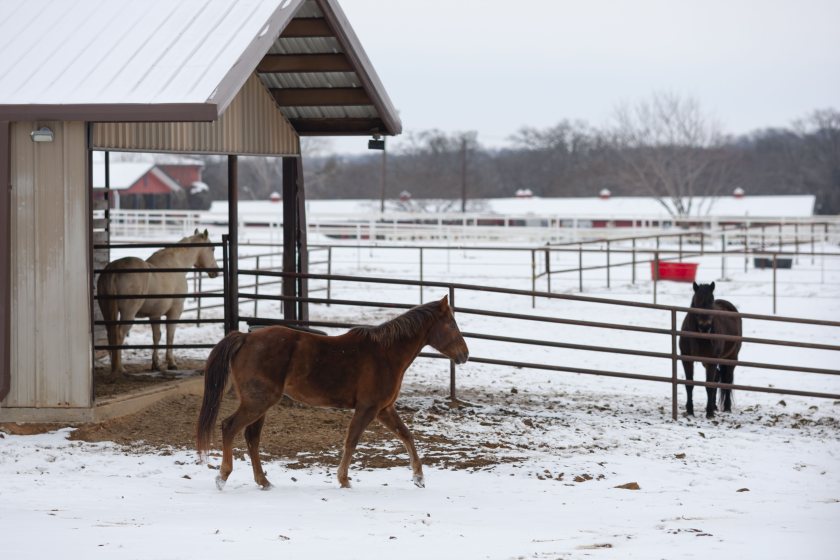
Farmers in the US state of Texas are battling to save their livestock as brutal winter weather continues to severely impact the agricultural industry.
Home to more than 13 million cattle, the Southwestern state has seen extreme weather conditions, causing power outages and food and water shortages.
Temperatures have fallen to lows not seen in three decades, reaching -18 degrees Celsius earlier in the week.
Dozens of people have died, and US President Joe Biden is set to declare a major disaster for the state, giving the green light for more federal assistance.
Farmers and ranchers are particularly seeing devastating effects from the rare winter storm on livestock, feed and agriculture products.
The dire situation has led Texas Agriculture Commissioner Sid Miller to issue a red alert earlier this week.
"I’m getting calls from farmers and ranchers across the state reporting that the interruptions in electricity and natural gas are having a devastating effect on their operations," he said.
Dairy businesses are dumping $8 million (£5.7m) worth of milk down the drains every day because processing plants do not have power, the Commissioner noted.
Elsewhere, some farmers are seeing baby chicks freeze to death because there is not enough natural gas to heat hatcheries.
"Grocery stores are already unable to get shipments of dairy products. Store shelves are already empty," Mr Miller added.
"We’re looking at a food supply chain problem like we’ve never seen before, even with Covid-19."
Commissioner Miller called on Texas Governor Greg Abbott to designate agriculture producers and processors as critical infrastructure that must be provided gas and electricity to continue operations.
“Governor Abbott must make ag industries a priority for electricity and gas just like hospitals, first responders, fire and police.
"I salute all our hospital workers and first responders as they deal with this natural disaster, but they won’t have food to eat if our farmers are left without power.”
